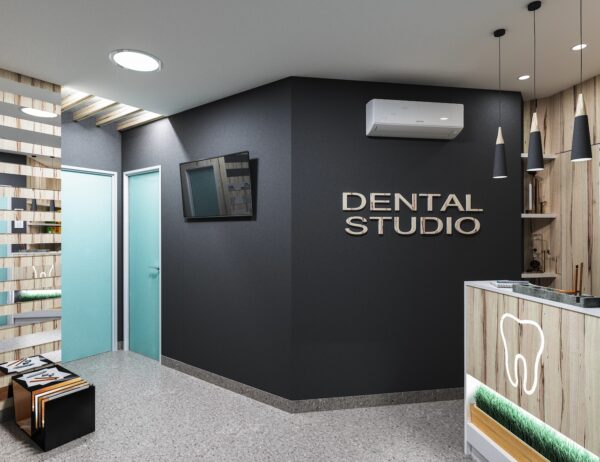In this, the second of three podcast synopses discussing some of the biggest issues facing dental practices today, we focus on ways that smaller practices can differentiate themselves from corporate providers. (Go here to read the first post in this series, and here to listen to the podcast episode on which this article is based.)
In a dental market increasingly dominated by Dental Service Organizations (DSOs), small practices need strategic advantages to remain competitive. DSOs leverage economies of scale, enabling them to access lower costs and broader resources, making them formidable competitors, particularly in terms of pricing and operational efficiencies. However, independent dental practices can distinguish themselves by focusing on quality, personalized service, and building a positive workplace culture.
One way they can do this is by offering exceptional customer care, something that might be diluted in larger corporate settings. This involves training staff not just in dental skills but in customer service excellence. For example, staff can make a notable difference by remembering personal details about patients – like upcoming vacations, recent marriages or births, or promotions at work – which can be noted in their profiles and mentioned during visits to create a more welcoming and personalized experience.
Moreover, fostering a strong workplace culture is vital. Independent practices often offer a more intimate setting where employees can feel genuinely appreciated and part of a team, unlike in some larger organizations where they might feel like just another number. This can be enhanced by providing opportunities for professional development, recognizing employee contributions, and ensuring that work-life balance is respected. Practices that invest in their teams not only improve morale but can also see increased patient satisfaction, as happy employees are more likely to provide better service.
Independent practices can also differentiate themselves by focusing on the qualitative aspects of their services. This includes the way they manage patient relationships, the atmosphere of the office, and how they handle patient communications and follow-ups. Practices might consider adopting advanced customer relationship management (CRM) systems to manage these aspects more effectively, ensuring that every patient interaction is as personalized and engaging as possible.
Incentivizing staff through performance bonuses linked to patient satisfaction and online reviews is another strategy. This not only motivates staff but also helps in building a positive online presence, which is crucial to attracting new patients. Offering unique services that DSOs may not provide, such as boutique cosmetic procedures or advanced patient education sessions, can also create patient “stickiness” and encourage them to refer you to their friends and colleagues.
Finally, embracing technology is crucial. This doesn’t mean only investing in new dental technologies but also improving the digital experience for patients. Ensuring that online booking is seamless, enhancing the practice’s website, and utilizing social media effectively can significantly enhance a practice’s visibility and appeal.
By focusing on these qualitative differentiators, independent dental practices can carve out a niche in an industry increasingly inclined towards consolidation. This approach not only helps in competing with DSOs but also in building a loyal patient base that values quality and personal touch over cost alone.
At Edwards and Associates, we take pride in the fact that we know the dental industry so well. And while we focus on your practice’s financial health, we know others that provide myriad other services and are happy to make referrals that will enhance your service delivery. Reach out to us if we can help in any way!




